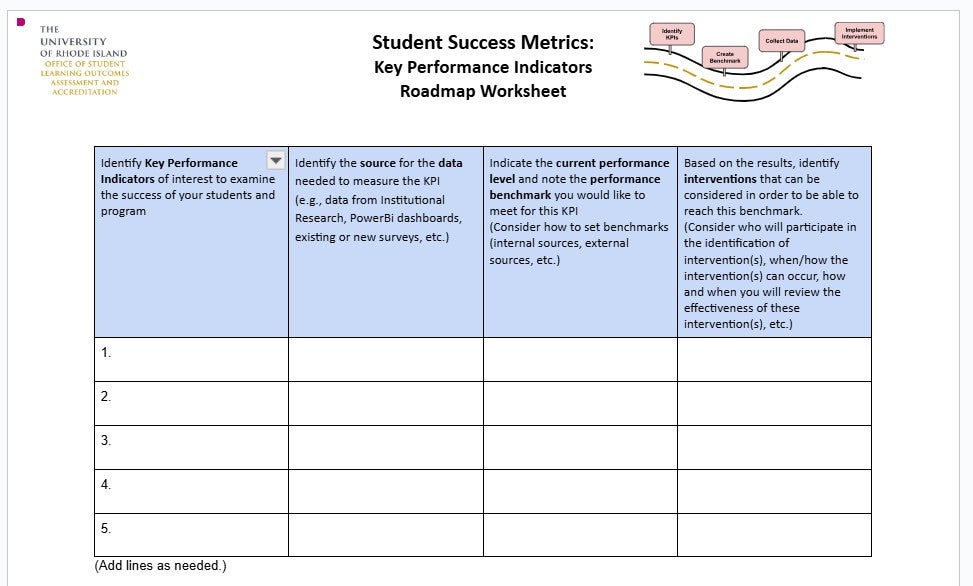Metrics that Matter: Integrating Key Performance Indicators into Program Improvement Efforts
All academic programs are encouraged to explore a broader, more holistic approach to student success using Key Performance Indicators (KPIs) as success metrics to complement the assessment of student learning outcomes. These broader measures include metrics critical to academic programs, Colleges, and the University, and can include:
- number of majors
- time to degree completion
- persistence rates (within the program, college and at the university)
- unproductive grade rates
- engagement in alumni-based career readiness classes
Examining student success metrics such as these, and other metrics across various student groups (e.g., by race/ethnicity, first-gen status, Pell eligibility) helps programs understand whether all students are progressing through a curriculum and succeeding, and provides the opportunity for faculty to respond the findings and to design interventions so that all students do have the opportunity to succeed.
How to start? Program faculty are encouraged to start by identifying first the most critical indicators of interest. Next, consider where to find the data that will address the metric(s) and think about data sources that may need to be created such as exit surveys. Identifying the program’s expectations for success – success benchmarks – gives faculty the opportunity to think about the results, dive deeper as needed, identify strengths and weaknesses and strategically plan interventions to increase student success to ensure progress toward benchmarks.


